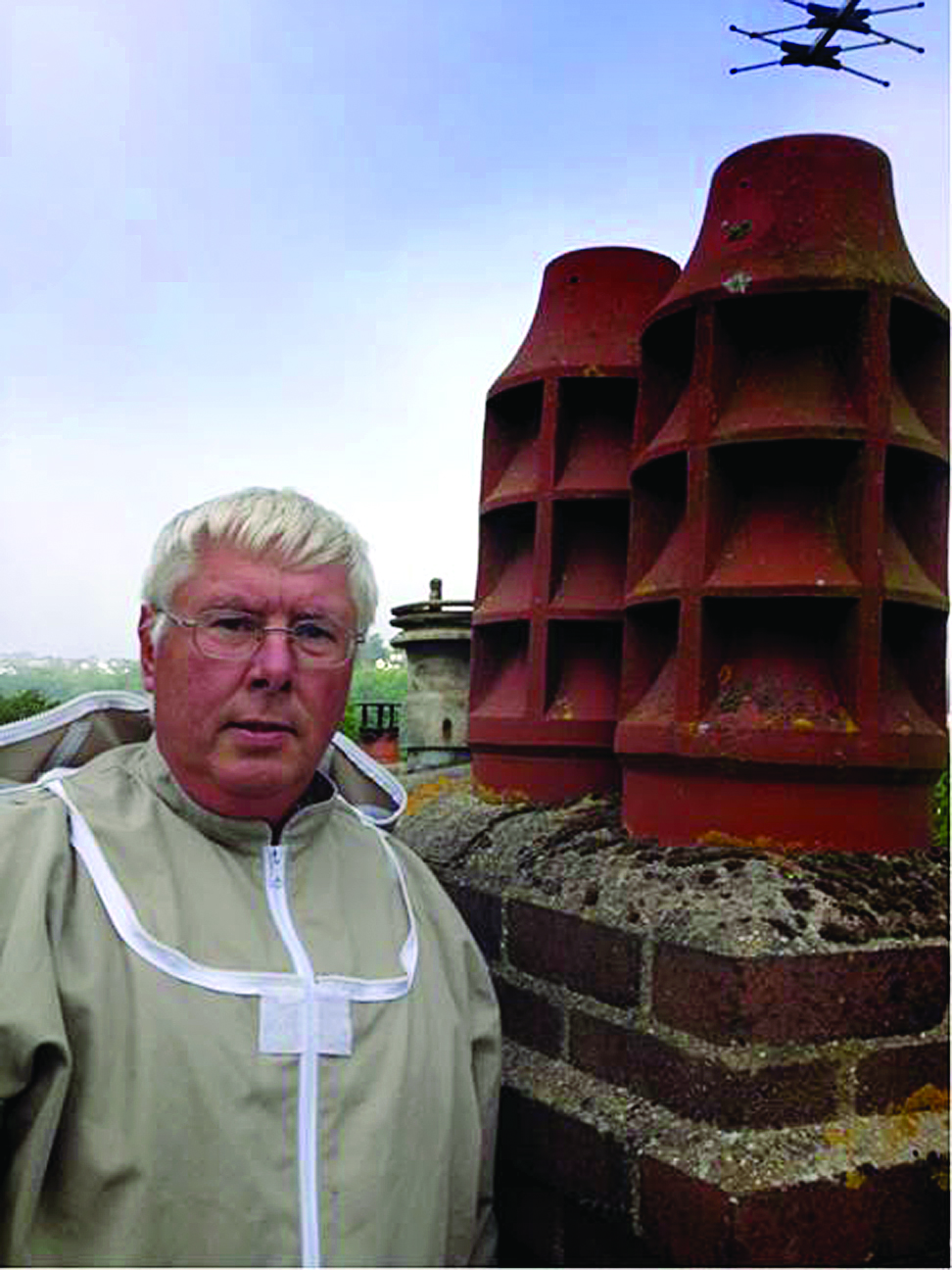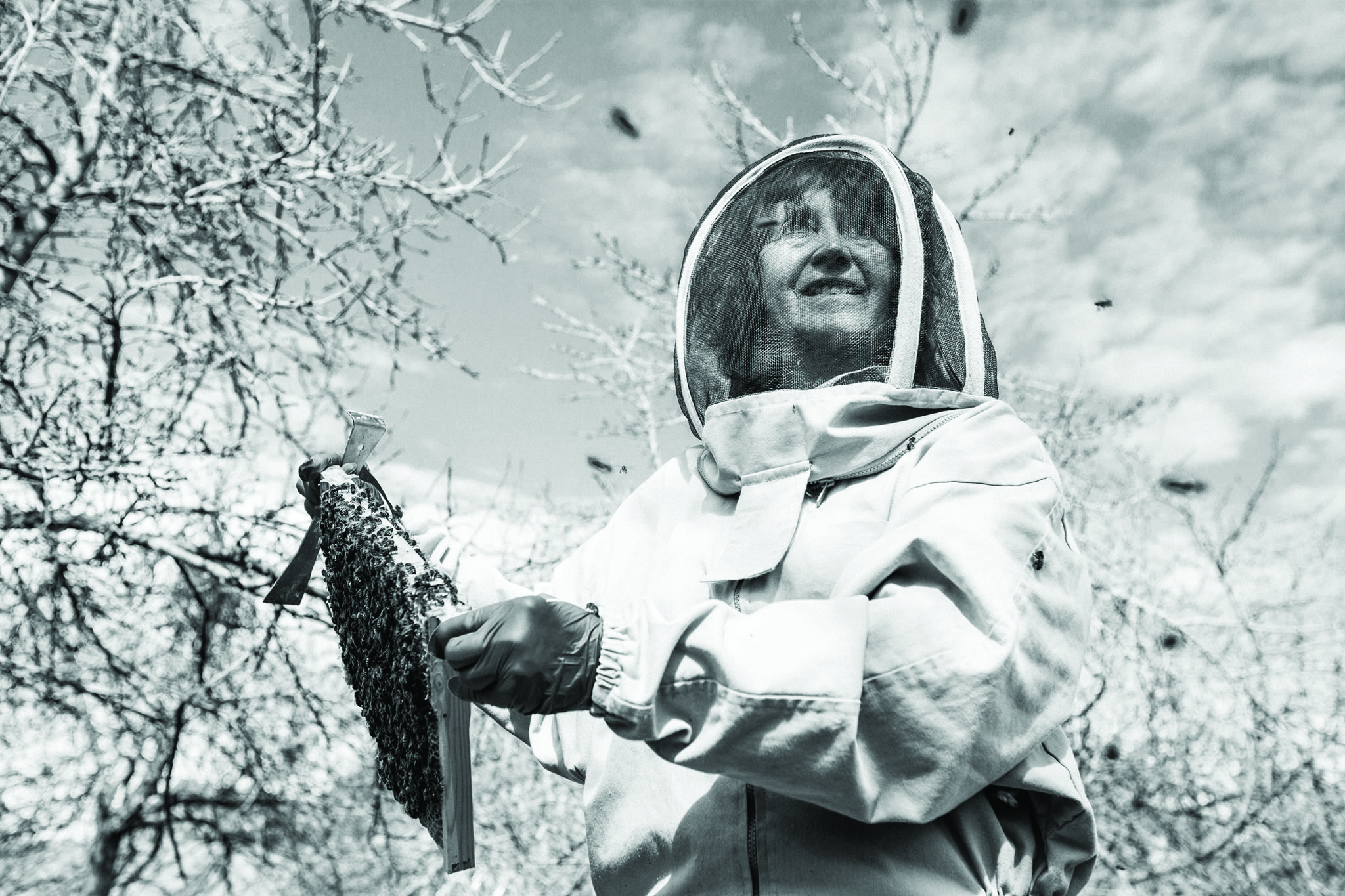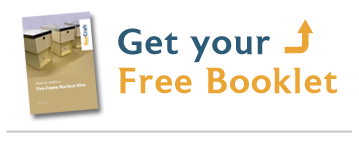Funny’ honey is hitting the news. Headlines in the UK and around the world are highlighting the issues of alleged widespread honey adulteration and postulating what can be done to protect consumers and beekeepers from the fraudulent and highly lucrative international trade.
In the UK, beekeepers are getting behind the Honey Authenticity Network UK (HAN UK), which aims to advance awareness of honey adulteration.
The BBKA ADM supported three propositions put forward by Devon BKA (and seconded by Somerset BKA) which address the issue of fraudulent honey.
 One of HAN UK’s founding members, Gerry Stuart from Devon, has spearheaded the drive to get the BBKA on board. A retired police officer of 35 years, Gerry is Paignton Zoo’s beekeeper, codirector of the B4 Project to protect the UK's native dark honey bee, Devon AHAT’s press officer and a beekeeper with 30 colonies. He also manages Cockington apiary on Devon’s English Riviera, where local beekeepers have form in championing the interests of bees and beekeepers. In 1992 they identified the first varroa mites in the UK; they have raised issues nationally about the risk of accidentally bringing small hive beetle (Aethina tumida) into the UK through unauthorised imports from Calabria, Italy; and were key in setting up the UK’s first Asian Hornet Action Team (AHAT).
One of HAN UK’s founding members, Gerry Stuart from Devon, has spearheaded the drive to get the BBKA on board. A retired police officer of 35 years, Gerry is Paignton Zoo’s beekeeper, codirector of the B4 Project to protect the UK's native dark honey bee, Devon AHAT’s press officer and a beekeeper with 30 colonies. He also manages Cockington apiary on Devon’s English Riviera, where local beekeepers have form in championing the interests of bees and beekeepers. In 1992 they identified the first varroa mites in the UK; they have raised issues nationally about the risk of accidentally bringing small hive beetle (Aethina tumida) into the UK through unauthorised imports from Calabria, Italy; and were key in setting up the UK’s first Asian Hornet Action Team (AHAT).
“We are passionate about doing something and not just sitting down and talking about it,” says Gerry. “Getting honey adulteration on the BBKA’s agenda is a stepping stone for raising awareness among beekeepers across the UK. Education is a key part of HAN UK’s strategy. We need to make the public and supermarkets aware and, by getting the BBKA involved, we can push government and trading standards to explain publicly what they are doing about it.
“We can make a difference to disrupt the fat cats by making the public and retailers more conscious of what’s going on and putting pressure on government and its agencies to act.
“I believe that honey should be exactly what it says on the jar. If it contains inverted rice sugar or corn syrup and other additives to bulk it out, then it should say so clearly on the label so that the public can make an informed choice.”
Even the former Belgian Prime Minister and MEP, Guy Verhofstadt, has picked up on media reports about the group which he used to support his claim that consumer protection could only be provided at level of the single market.
 HAN UK is chaired by Lynne Ingram NDB, who was moved to act after visiting Apimondia 2019 held in Montreal, Canada. There, for the first time, all honey entries were laboratory tested before judging. A startling 47% of entries failed because of issues varying from residues and antibiotics to problems with the stated country of origin.
HAN UK is chaired by Lynne Ingram NDB, who was moved to act after visiting Apimondia 2019 held in Montreal, Canada. There, for the first time, all honey entries were laboratory tested before judging. A startling 47% of entries failed because of issues varying from residues and antibiotics to problems with the stated country of origin.
“Seeing so many empty shelves at that Apimondia honey show brought home to me the scale of the problem,” says Lynne.
Lynne, a beekeeper for more than 40 years, keeps 30 colonies in East Huntspill, Somerset, and runs the Somerset BKA AHAT and online lecture programme. Since Apimondia, she has given talks about honey adulteration to beekeepers all over the country.
“As beekeepers, we are in contact with both the industry and consumers and HAN UK is building a fast-growing body of interested and concerned people and companies.”
Honey regs review overdue
While legalisation and government bodies from trading standards to the Food Standards Agency are charged to protect the public, the group claims that the scale of the honey fraud is growing.
“The statutory agencies are not moving on this issue and the Food Crime Agency doesn’t even have honey within the scope of its current plans,” says Lynne.
“The legal regulations [The Honey (England) Regulations 2015] are overdue a review and we want the honey definitions to enable consumers to make properly informed choices.
“We need the labelling requirements to follow the proposal of the EU’s Slovenian president so that all the countries of origin of honey blends are listed – that way we won’t see Chinese honey described as a blend of non-EU honeys.
“Relevant food agencies and authorities need to be adequately resourced and the regulations should be underpinned by an enhanced and agreed testing regime that can adequately assess composition and authenticity.
“New honey standards in the United States came into effect at the beginning of December and include a raft of tests for honey adulteration. We need something similarly meaningful here.”
International support for a global issue
HAN UK international member Federico Berrón from the Yucatan, Mexico, has been involved in the beekeeping world for nearly 40 years. He heads a honey company founded on the principles of fair trade and, as an economist with a raw materials trade background, became increasingly aware of widespread industry practices used to drive down quality and price.
In 2012 he became a public face of Mexican beekeeping against GMOs (genitically modified organisms), pioneering group litigation that ended up with bans for GMO soy and corn in the country. He has lectured at Apimondia and works to address the issues of honey adulteration. He also led mead making in Mexico.
For him the tipping point to taking action came when he reviewed the numbers: “There is more honey being sold each year than existing bee populations are capable of producing and from some countries which don’t even have the climate or floral resources to produce large volumes of honey.
“I knew that this situation could drive all those beekeepers I work with into bankruptcy. Adulteration is the greatest threat to beekeepers in the history of beekeeping and what’s at stake in the UK is huge. It is important to take action now as the conditions for honey laundering have never been easier.”
Federico, together with environmental activist Luis Arturo, set up the Honey Authentication Project to highlight what they claim is industrial fraud on a massive scale. They estimate about one third of worldwide honey imports could be counterfeit.
Three Devon propositions for 2022 BBKA ADM
1 That BBKA approach National Trading Standards to enquire:
a) What action is being taken to investigate the importation of adulterated honey into the UK?
b) Will National Trading Standards assure the BBKA that the methods currently used to analyse and identify honey adulterants are fit for purpose?
c) What action is being taken to ensure that consumers are made fully aware that any product sold in the UK as ‘pure honey’ could in fact contain added ingredients that are not itemised on the label?
2 That BBKA asks HM Government to the same questions as in 1 (above)
3 Should it be found that the current testing of imported honey is not fit for purpose and adulterated honey is entering the UK market, we ask the BBKA upon the review of evidence to adopt a timely programme of support and publicity to inhibit and discourage the importation, use and misrepresented sale of adulterated honey, until satisfied that this risk is averted.
Apimondia, The International Federation of Beekeeping Associations, issued a stark warning
An extract from the statement on honey fraud published by Apimondia in January 2020:
“With only some exceptions, current honey prices paid to the beekeeper are not sustainable. If the current situation of low prices persists, many beekeepers will abandon the activity, and those who decide to continue will not be incentivised to keep their current colony counts. Honey fraud threatens honey’s image as a natural product and its attractiveness and appeal to consumers, and harms honest beekeeping. It also happens at the expense of consumers who often do not receive the product they expect and pay for. The overall result is a threat to food safety, food security and ecological sustainability.
“In order to better understand the magnitude of the problem, we must remember that honey is the best known product of bees but surely not the most important one. Bees, through their pollination work, are essential for the maintenance of the planet's biodiversity, and absolutely necessary for the pollination of crops that represent 35% of all our food. Moreover, bee pollination is not only important in terms of quantities of produced food but also because many of the pollinator dependent crops are also among the richest in micronutrients essential to human health.”
Discover more
Watch: Netflix – Rotten Lawyers, Guns & Honey
Google: “Apimondia statement on honey fraud”
Join: HAN UK Facebook page @HAN UK
Anne Pike, BeeCraft digital communications manager and founding member of HAN UK and a hobby beekeeper.
February 2022
Other articles this month included:
Varroa-resistant bees: A pilot test with commerical beekeeping by Ralph Buchler, Norman Carreck et al
Climate change: Weather and honey bee disease by Ben Rowland, PhD candidate at Newcastle University
Unpicking the pollen puzzle by Jemma Westing

Subscribe to BeeCraft Magazine
- £27.00* - Digital Subscription | 12 months
- £45.00* - UK Printed Subscription | 12 months
- £80.00 - UK Printed Subscription | 24 months
* UK residents over the age of 18 can subscribe to BeeCraft via Direct Debit and save up to £7.00 on your subscription. For more information on our Direct Debit scheme, please click here.
- £27.00 - Digital Subscription | 12 months
- £50.00 - Digital Subscription | 24 months
- £67.00 - RoI & European Printed Subscription | 12 months
- £27.00 - Digital Subscription | 12 months
- £50.00 - Digital Subscription | 24 months
- £90.00 - Worldwide Printed Subscription | 12 months

